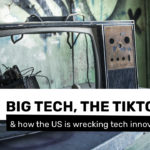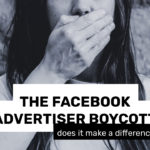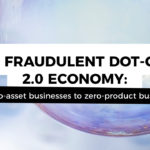In the late 1990’s, many prominent figures in business, technology and economics started worrying about the so called year 2000 problem, also known as the Millennium bug or Y2K. This problem refers to how computers back then stored calendar dates with only two digits, making the year 2000 indistinguishable from 1900. Therefore, many people were anticipating critical issues at the turning of the millennium, as this would render all sorts of dated records and real-time events wildly incorrect. It was speculated that this would trip up anything from stock markets to manufacturing processes to your alarm clock. After all, if the computers think it’s 1900, surely that would have some side effects… Right?
Meanwhile, Alan Greenspan, then head of the Federal reserve, the central bank of the US, took a particularly keen interest in this issue. In fact, he was particularly worried about it — or at least, the possible societal side effects stemming from the bug. Greenspan said that if Americans were worried about frozen bank accounts and disabled ATM machines, that would lead them to withdraw large sums of cash in advance, all of which would of course place stress on the system. While he was urging citizens to remain calm and not to prepare, he had the Federal Reserve banks prepare by literally stockpiling shrink-wrapped currency at nine locations across the country. All of this harkens back to today, and the scrambling for facial masks.
Greenspan also promised more liquidity if needed, and he kept interest rates relatively low. All of this helped perpetuate easy credit to flow into the most speculative assets of the time — Dotcom stocks. So yes, in some small part, we do have one man’s overblown worries to thank for the creation the Dotcom stock market bubble. When it became clear that the dotcoms were not really going to change everything we knew about the world (at least not yet), and that many of the Dotcom startups were just pipe dreams, frauds and unnecessary technology for technology’s sake, the Dotcom bubble of course popped.
Of course, Greenspan’s reaction was to lower interest rates even more to try and facilitate more credit creation, and elevate the markets once again. So, throughout the next few years, interest rates were held low to try and bolster the economy, which was now sorely needed considering the country had now launched into war with Iraq. Again, the easy money flowed to the next big thing that seemed to have legs — the asset class that up until that point had never seen a secular decline in prices: the housing market.
Fast-forward to 2005, when Ben Bernanke started raising rates, and as people could now no longer afford their mortgages at the rising interest rates, the bubble popped. Because you now had more leverage in the system, more credit and more instruments built on top of housing assets, the ensuing chaos now threatened the greater financial system, and the banks themselves. And as the market forces started coming into play to clean up the mess and liquidate the over leveraged banks, the fed’s solution was, of course, to lower interest rates again and to provide liquidity to save the banks. (The ones that got us in this mess in the first place).
This time, with yet another sugar rush created by the fed, capital started flowing into the next set of risk assets — yes, the fed had blown up the everything bubble. In 2010 and onwards, stocks, bonds, housing — everything rallied. It rallied, of course until it found its next real world obstacle. A pin that would prick the bubble. That turned out to be, not a bug, but a virus.
Fast forward to 2020. As the market forces once again caught up with the artificial bubble, sending stocks into free fall. In fact, stock markets came crashing down at the fastest rate ever. And right on cue, as the crisis deepened, both the central bank and the greater government panicked went into hyper gear to save us all. Lockdowns were introduced, which basically strangled any traditional business or businesses deemed by the government not to be ’essential’. So, we had the most brittle conditions imaginable, and we pulled the rug from underneath of everyone. Meanwhile, Jay Powell who is now the head of the fed, decided to print money like there was no tomorrow. That gave us what will prove to be the great distortion. Big companies with a well-known online presence would actually thrive in the short term, while traditional local businesses would die by the thousands. Your local gardening store is probably closed, and the gardening section is probably even barricaded shut at your Costco, but you can buy gardening supplies from Amazon. There are winners from the lockdown, and as usual, it’s going to be the ones facilitated by the prevailing government policy.
Powell of course did not disperse the aid through tax rebates or using any kind of means that would have directly funded businesses. No, he dolloped out the money to the banks, which resulted in a fiasco. Many businesses will go under because they can’t secure the funds fast enough. That’s not to say that printing the money is a good idea, but it is to say that winners and losers are determined by the banks, as they administer the handouts. The point being, these are the perverting effects of fed policy. Every time the economy has faced an impending crisis (imagined or real), the solution has been to accommodate with monetary policy. This was true in 1999, 2008 and 2020. Every time the government has put its thumb on the scale, the outcome has been to fool the market into another frenzy, and to of course create further misallocations of capital, to pick winners and losers, and to allow for further unequal distribution of wealth.
This time around, it’s quite possible that we see the established dot-coms, the FAANG stocks, grow ever larger. And this has already happened if you look at the stock market. The FAANG stocks have hardly lost any value since February, while tens of thousands of businesses will go bankrupt. So what? Can’t Amazon own everything and we’ll all be happy? Well, let’s not be naive about the motives of Amazon. Only just recently, they have again found themselves in hot water, because of antitrust action, and it looks like this may open up a criminal investigation. Basically, Amazon employees are alleged to have used data from the third-party sellers in order to create Amazon’s own copycat products.
We already know that Amazon prioritizes their own products in searches, and positions them as being the best in value and quality when in reality this may not be the case at all. All of this is, of course illegal, and it’s a perfect display of gross abuse of your position in the market. It’s yet another continuation of the greater trend: remember how Amazon initially outcompeted all the physical bookstores? Well sine then they have, lo and behold, gotten into the business of opening physical bookstores. And once they control the market and have complete pricing power, why would they possibly keep the prices low?
And herein lies the danger of monopolies. And this is why it’s important to support the alternatives. This is why alt-tech important. Personally, I’ve made it a point to no longer shop at Amazon, even if it comes at the expense of a higher price paid. Here’s a tip for you: use Amazon as a search engine. If you find a product you liked, look up their own website. Chances are they’ll be shipping the product themselves — occasionally there’ll even be a discount if you shop around a bit, or sign up to their newsletter, or if you just ask.
Similarly, as tempting as it is to use Uber Eats, Deliveroo, Just Eat to order a meal, the restaurants are not going to make very much off of these orders, and neither is the delivery guy. If you must get the delivery, pay a hearty tip — the poor dude may be risking his health as it is. But if you want your restaurant to survive, head on down to the restaurant and grab a takeaway. You probably need the fresh air and the walk anyway!
If you still have a mom & pop grocery shop near you, why not support it? I’ve found that those kinds of places are far less crowded to begin with. If you’re looking for quality meat, head to your local butcher, if you still are lucky enough to have one. A lot of people are now looking for entertainment, games, movies, etc. A lot of people are also decking out their home offices and need more furniture, appliances, electronics, etc. You can usually find a good deal on this on all of this on places like Ebay, Etsy, Craigslist, etc. Plus, a big chunk of money will go to those who probably need it way more than Amazon does.
It’s a free world, and you’re free to do what you like and shop where you like. If you want to give all your money to Amazon, Facebook, Google and Apple, that’s your choice. But I do want to make a point of how we got here, and where all of this is heading. With every crisis comes more interventions, and with those there are winners and losers — and the winners become fewer and fewer. Every time, we seem to end up with more monolithic businesses — the banks got fewer and bigger and now the dotcoms are about to get fewer and bigger. Unless, of course, you keep supporting the alternatives — be that choosing the local corner store, or the edgy alt-tech social media platform. Your choice.
Supporters of taim.io.










